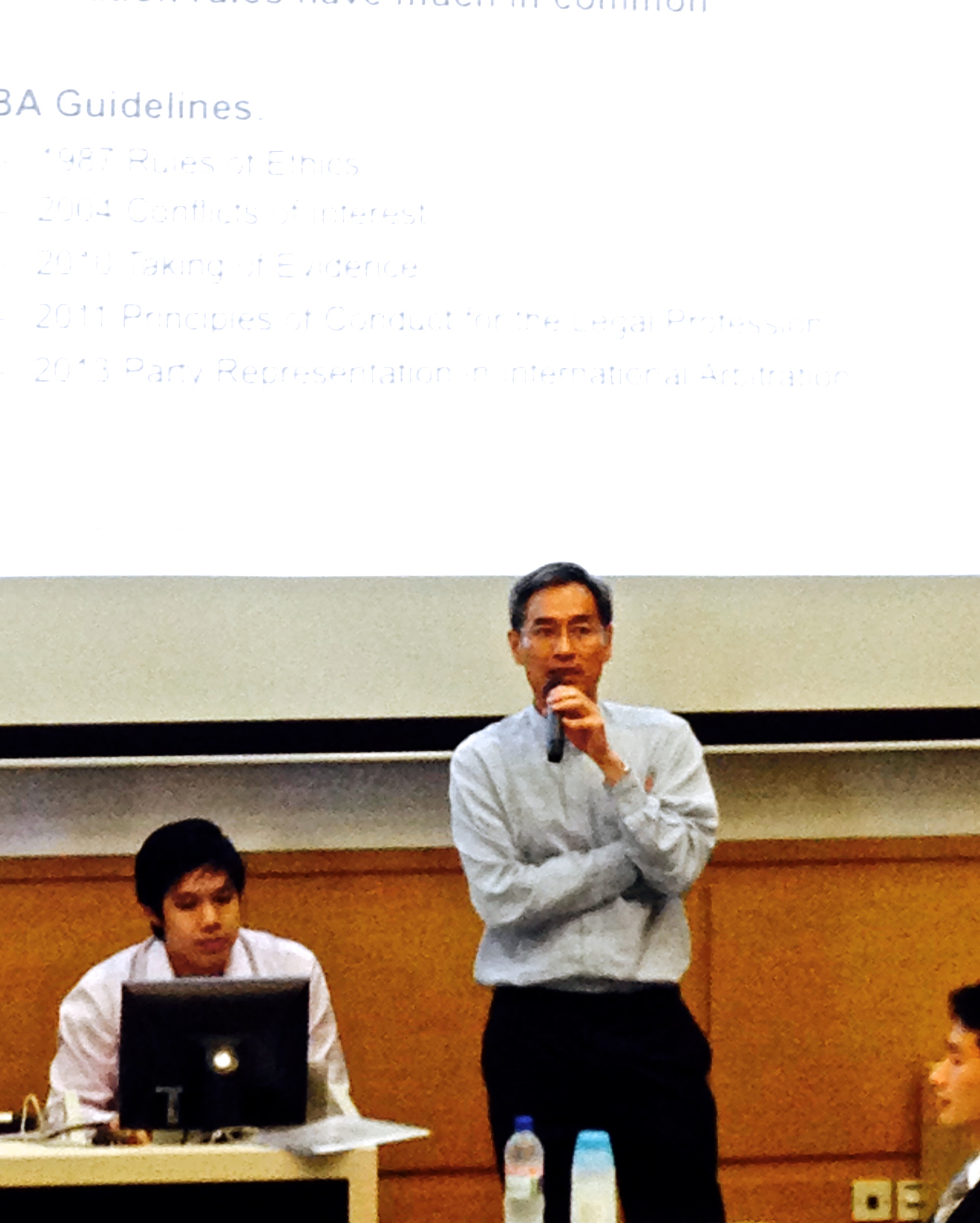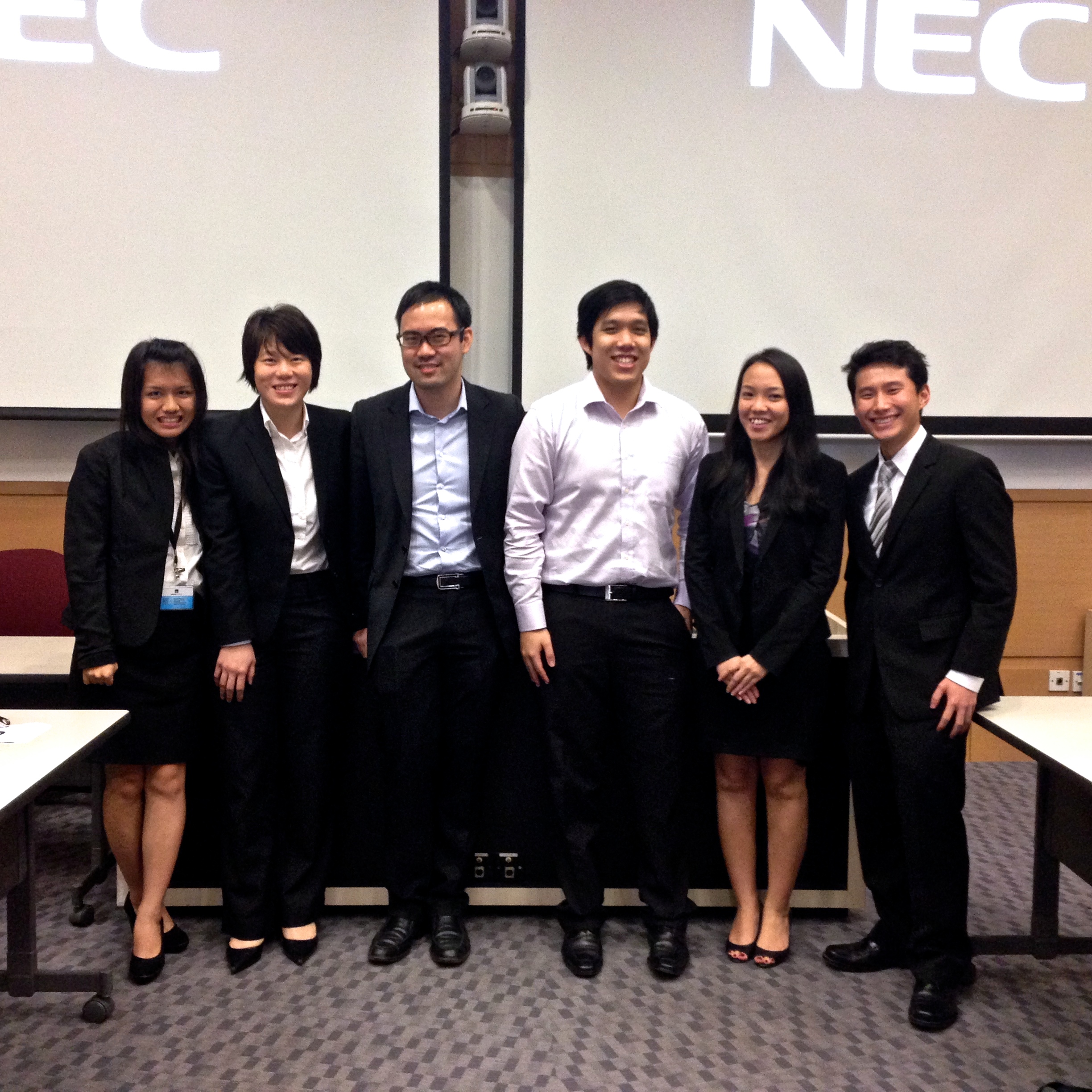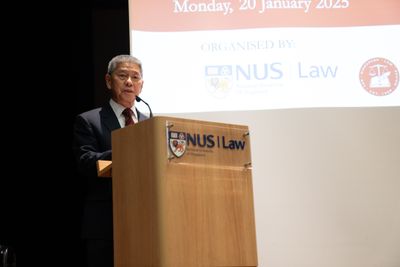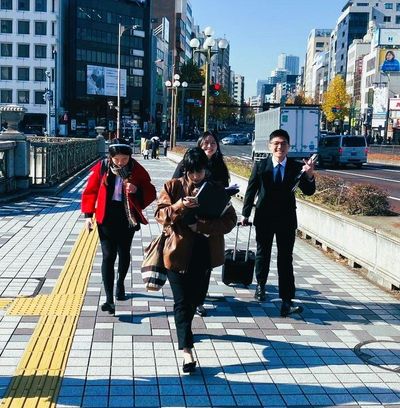
The WongPartnership International Commercial Arbitration Moot is unique for two reasons. First, it is the only sit-down local moot that is available to students. Second, it is only open to first- and second-year students. For these reasons, many year-ones and twos flock to the WongP moots in the hopes of doing well. For ambitious year ones, it represents a chance to try their hand at something which they will be much more familiar with in the course of this coming semester – the LAWR moots. For the second years, it is an opportunity to show their skills in a moot where the odds of winning are, essentially, at their best.
But for those who were still undecided whether or not to plunge headfirst into possible utter humiliation, WongPartnership kindly hosted a demonstration moot at the Lecture Theatre on Wednesday, 15 Jan in anticipation of their upcoming moot and to promote arbitration at the same time. Those in attendance (or even those not in attendance ;)) were thereafter invited for a free lunch.

The session opened with Alvin Yeo SC, a Senior Partner at WongPartnership, giving a talk about arbitration in general. According to WongPartnership’s website, Mr Yeo is basically a heavyweight in the field of arbitration. Concurrently, Mr Yeo is also a current MP. Finally, he is also presently one of the available arbitrators within the Singapore International Arbitration Centre (SIAC) – which is why, he jokes, he tries so hard to promote Arbitration. Mr Yeo cited many facts and figures in support of why an undecided law student should gravitate towards the field of arbitration. But for Mr Yeo himself, the most compelling reason is that arbitration is the one form of dispute resolution where parties can choose their judges. For Mr Yeo, it’s a whole new science and art to choosing one’s arbitrators. Memorably, Mr Yeo quipped that while some counsel like smart arbitrators, there are at times some counsel who like the “not-so-smart” arbitrators when one does not have a good case. Some counsel are also keenly aware that some arbitrators do not take easily to Asian witnesses who are perhaps not as articulate. But to this author, it is not whether the arbitrator is “smart” or “not-so-smart” but rather between the “extremely extremely smart” and the merely “extremely smart”. Or perhaps this author usually only focuses on his own case and is too nervous to notice, much less strategize, according to who is on the bench. In any case, choosing one’s own judges is indeed something that appeals to this author, at least until the other party to the dispute chooses a more suitable one. It’s somewhat like being able to pick and choose from which tutors one wants for one’s modules… wouldn’t you love that.
Mr Alvin Yeo then handed the time over to practice trainees from WongPartnership to carry out the demonstration moot. WongPartnership’s moot is based on Arbitration. Briefly speaking, parties have to draft an arbitration agreement or clause beforehand determining, inter alia, the law that will be used, the members of the tribunal, and other relevant rules. Unfortunately, the scope of the moot is already fixed on Singapore law, and participants don’t get to choose which partners or associates judge their Moots. But imagine for a moment a final-round moot where the finalists pick between, say, Quentin Loh J (who is on this year’s panel for the Final) and AG Steven Chong (who was on last year’s panel). Wouldn’t that be fun.

In any case, this year’s demonstration moot centered around the 2012 problem. The demonstration mooters were practice trainees from WongPartnership. In short, the two issues that were contested were (1) whether an implied condition was breached giving the claimant the right to repudiate, and (2) whether an implied agency could be found on the part of the respondents’ parent and subsidiary companies. First-years can take solace in knowing that the moot problem is largely centered around contract law. This author took part in WongP moots last year, when he was a year one, and hadn’t yet learnt mooting. Fortunately, last year’s problem was on breach and misrepresentation, which had already been taught. Here’s hoping that this year’s problem will be something similar, for the benefit of the year-ones.
The demonstration largely focused on how to present one’s case, how to address questions posed to counsel by the arbitrators – in short, the basics of mooting. Because the mooters actually knew the members of the tribunal, some hilarious moments ensued where counsel for the respondent addressed the arbitrators as ‘you guys’ (don’t try that in a moot) or when both the counsel and the arbitrators pursued the analogy of buying a car, but the car being so lousy that it essentially became a weekend car. The analogy was taken even further in the rebuttals of the claimant’s counsel, who likened the turbines in question not just to a car which was essentially a weekend car, but a “weekend car which could explode at any time”. One wonders how the mooters came up with that on the spot. On a serious note, though, such analogies are legitimate and even effective ways for mooters to allow judges to remember their case. Take notes!
Sign-ups for the Moot are still open, and will remain open until 30 Jan midnight. To win up to $1,200 in prizes, or a two-week internship at WongPartnership, or even just for an opportunity to put forth your own weekend car or Apple-and-Singtel analogies, sign up today!







